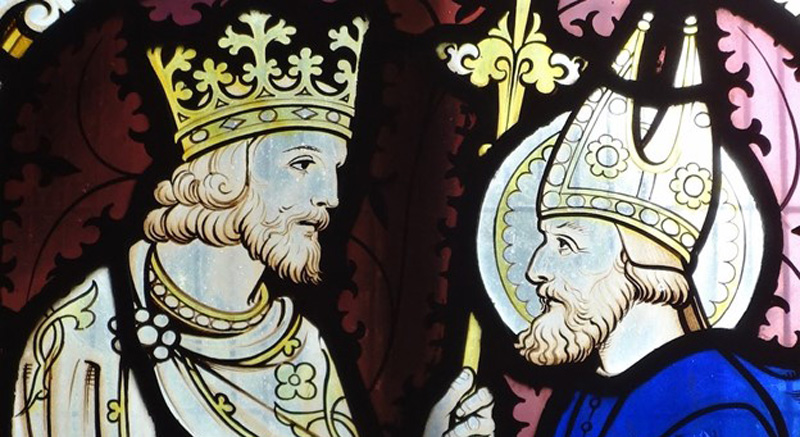(Died circa 720)
Egwin was born with royal blood at a time when Christianity still was making inroads into the culture of Great Britain.
Though he had sought to retired from the world and live in seclusion of religious life, he was forced by popular acclaim to assume the vacant see of the bishop of Worcester. Though his universal popularity which forced on him this reluctant assumption of the episcopal functions, it was soon wrecked by his apostolic zeal.
The Anglo-Saxon population of the then young diocese had had less than a century in which to become habituated to the restraints of Christian morality; they as yet hardly understood the sanctity of Christian marriage and the struggle of the English Benedictines for the chastity of the priesthood.
At the same time large sections of England were more or less permanently occupied by pagans closely allied in blood to the Anglo-Saxon Christians. Egwin displayed undaunted zeal in his efforts to evangelize the heathen and no less in the enforcement of ecclesiastical discipline.
His rigorous policy toward his own flock created a bitter resentment which, as King Ethelred was his friend, could only find vent in accusations addressed to his ecclesiastical superiors. Egwin undertook a pilgrimage to seek vindication from the Roman pontiff himself.
After Egwin’s triumphant return from this pilgrimage, a shepherd, Eoves, came to him with the tale of a miraculous vision by which the Blessed Virgin had signified her will that a new sanctuary should be dedicated to her. Egwin went to the spot pointed out by the shepherd (Eoves ham, or “dwelling”) and he too had the same vision. King Ethelred granted him the land thereabouts upon which the famous abbey was founded.
About 709, Egwin made his second pilgrimage to Rome, this time in the company of Coenred, the successor of Ethelred, and Offa, King of the East Saxons, and it was on this occasion that Pope Constantine granted him the extraordinary privileges by which the Abbey of Evesham was distinguished. One of the last important acts of his episcopate was his participation in the first great Council of Clovesho.
Adapted by A. J. Valentini from: Macpherson, E. (1909). St. Egwin. In The Catholic Encyclopedia. New York: Robert Appleton Company. Retrieved Dec. 24, 2020 from New Advent: http://www.newadvent.org/cathen/05329a.htm
